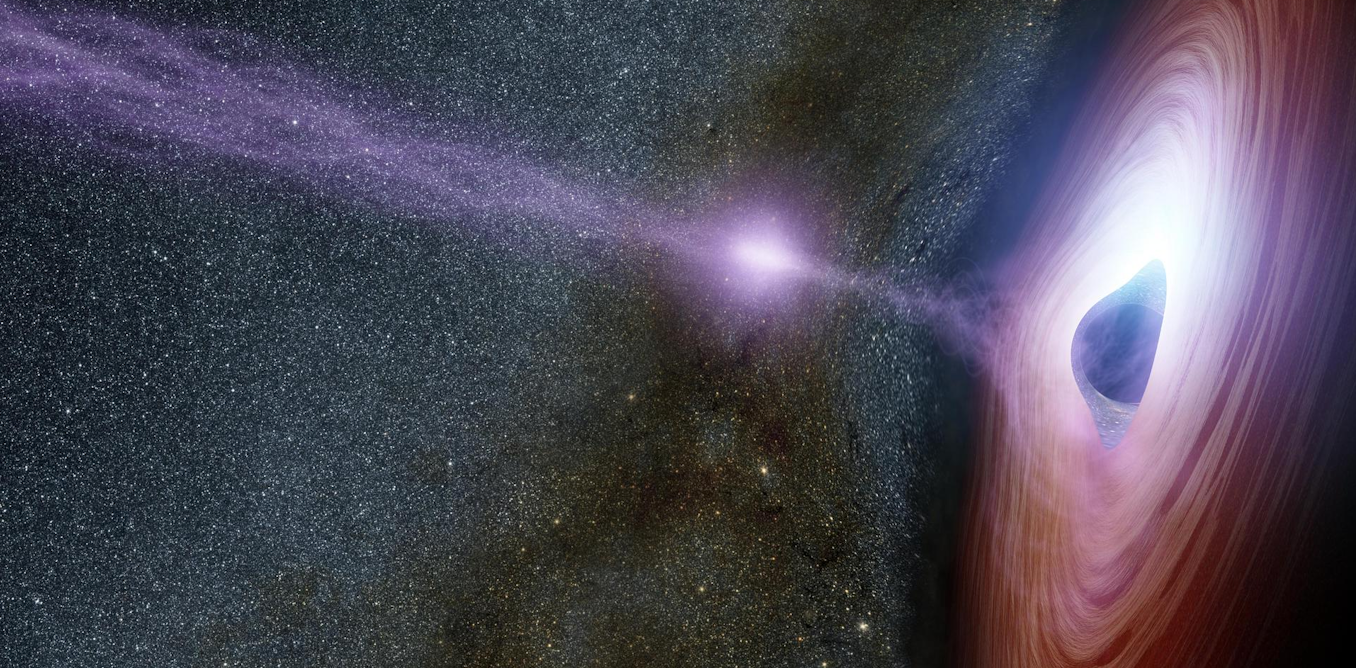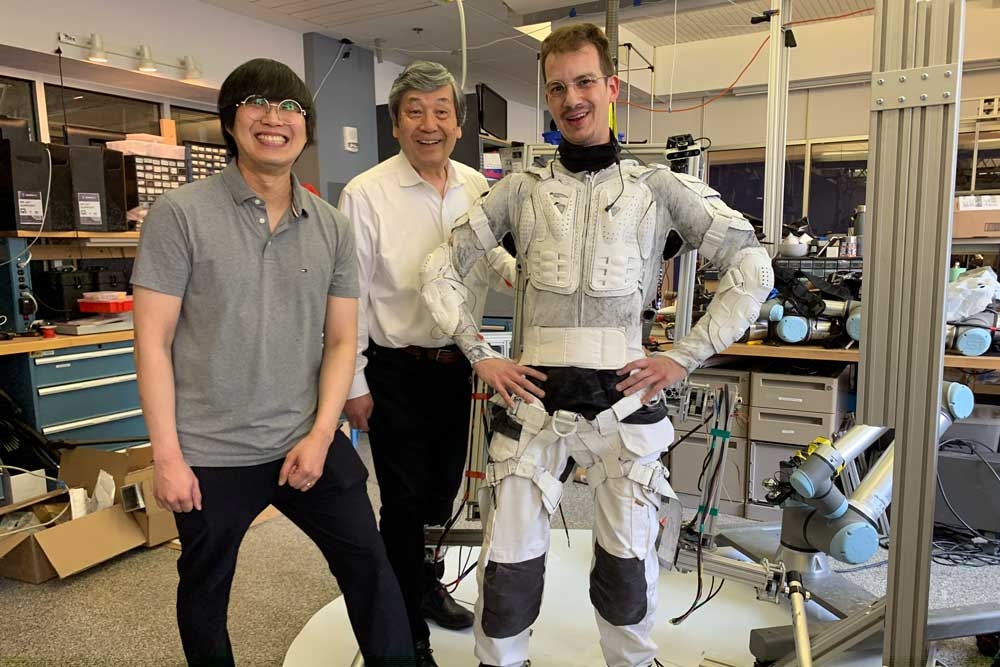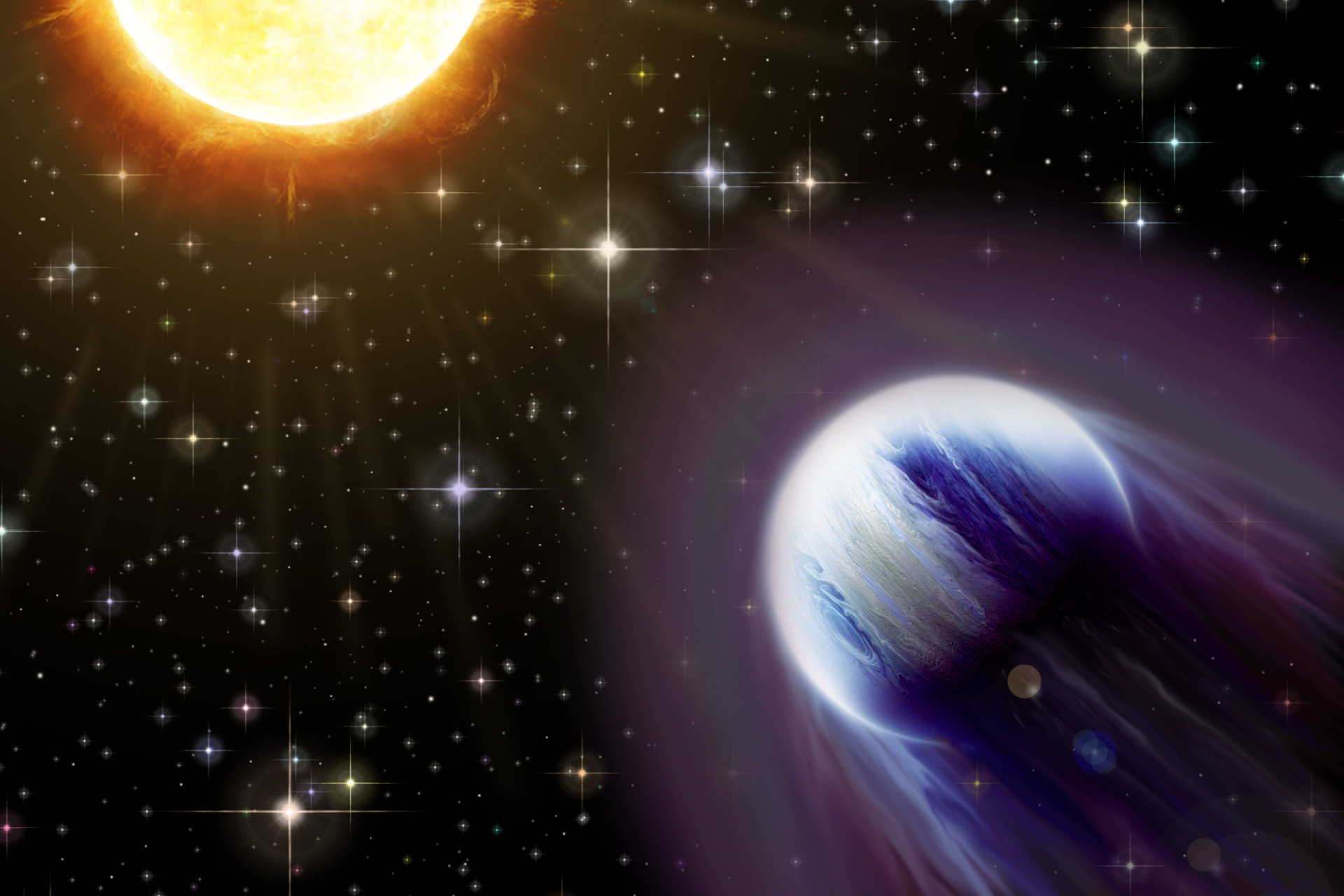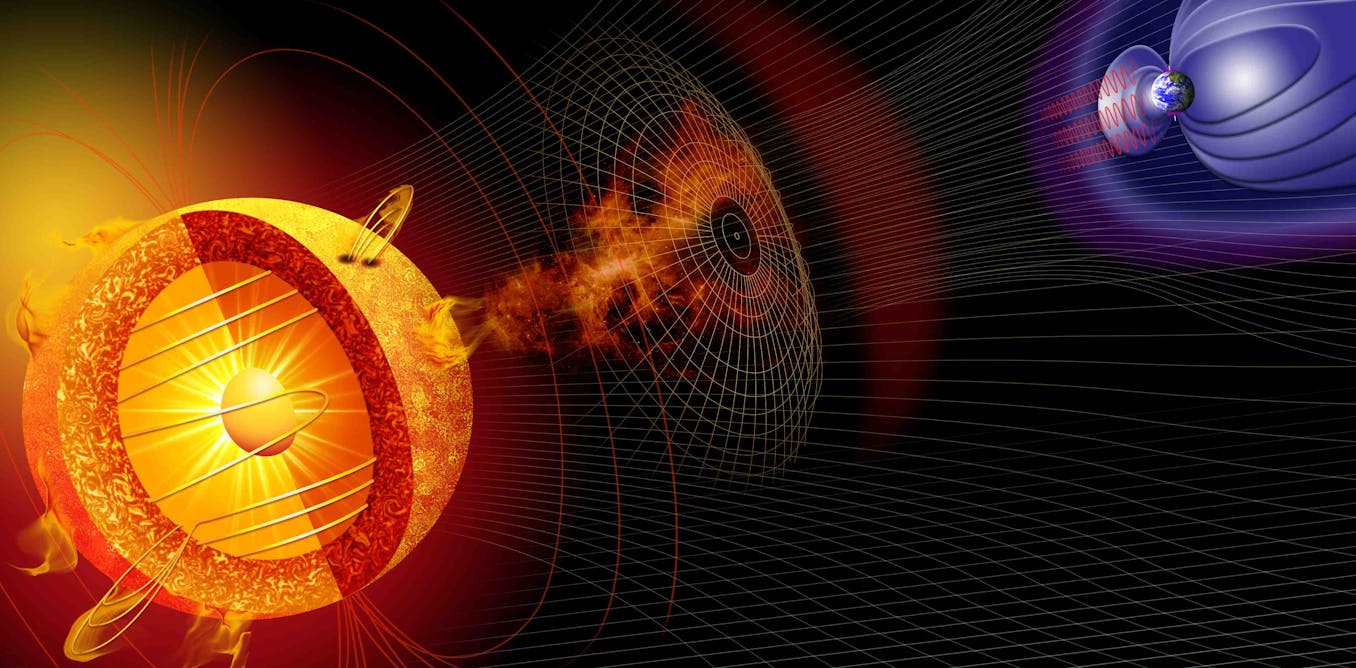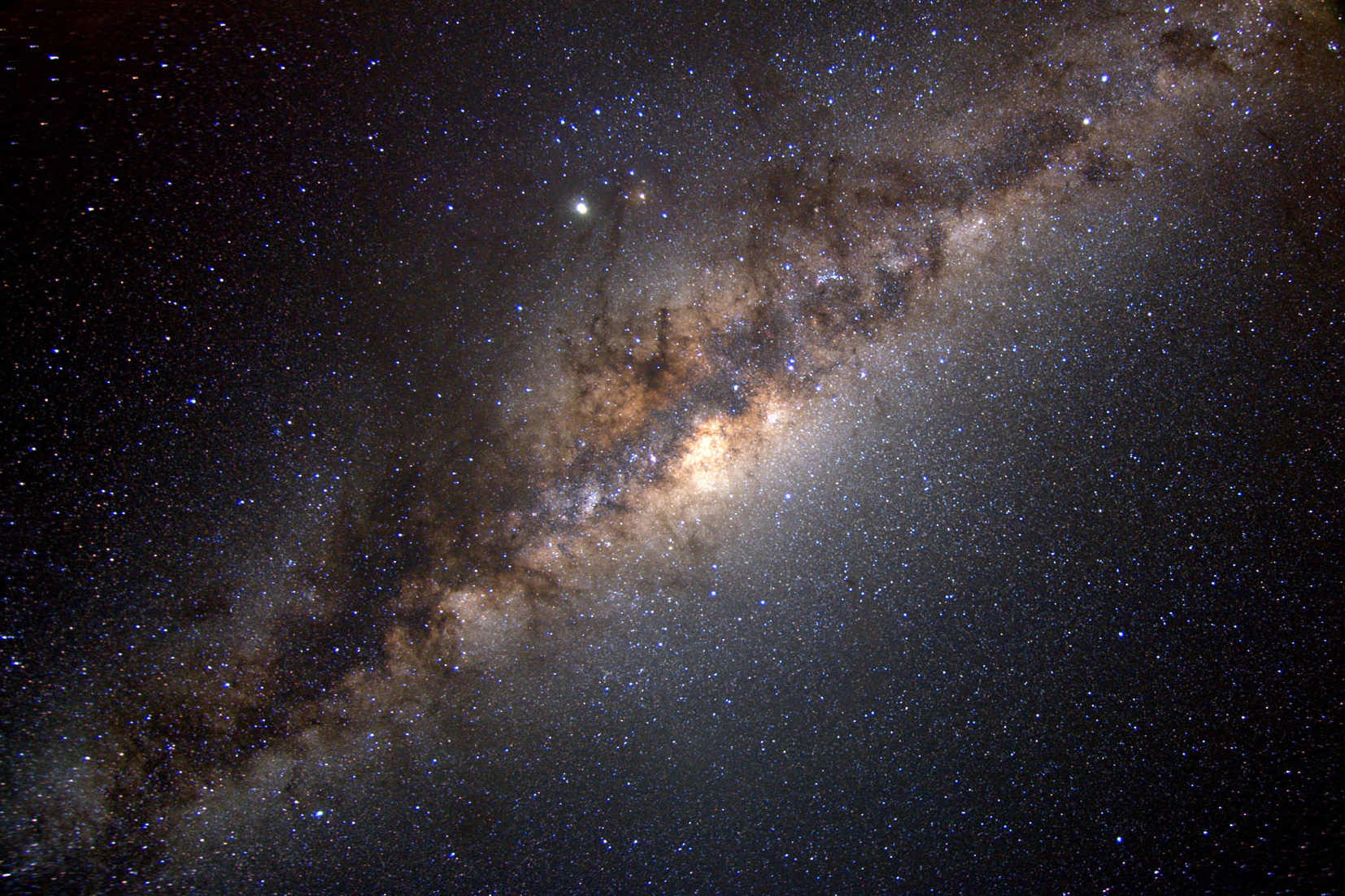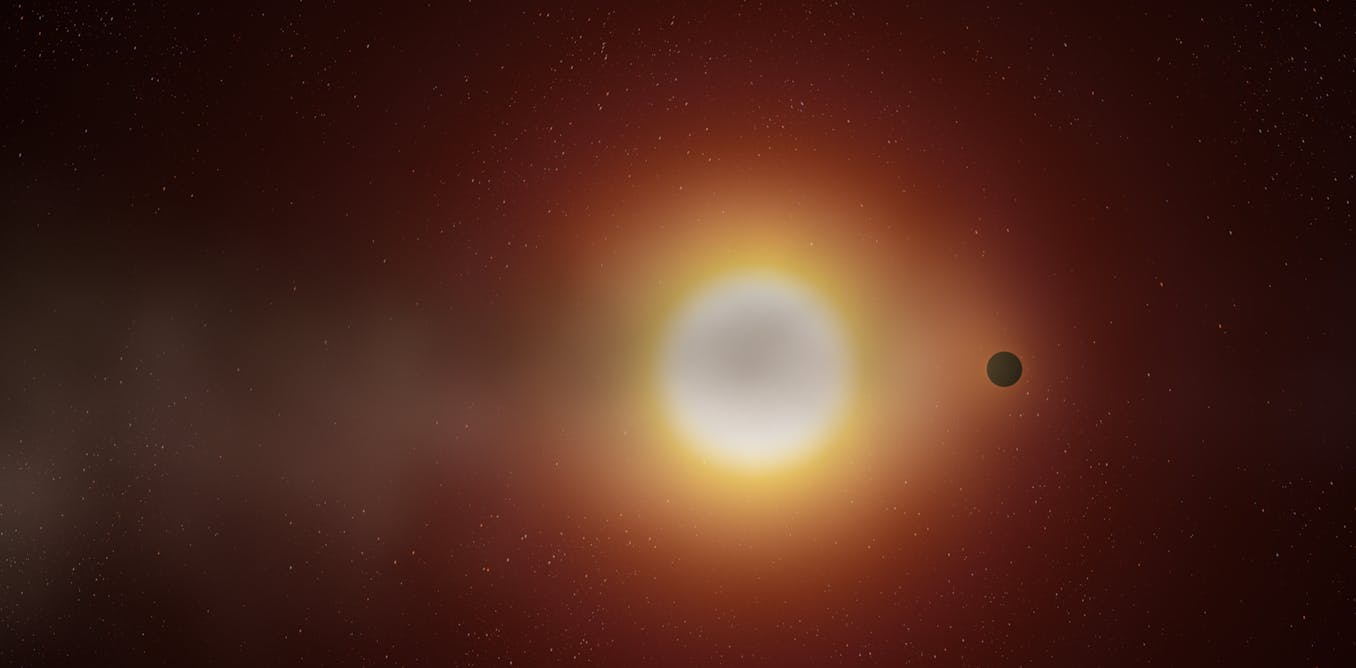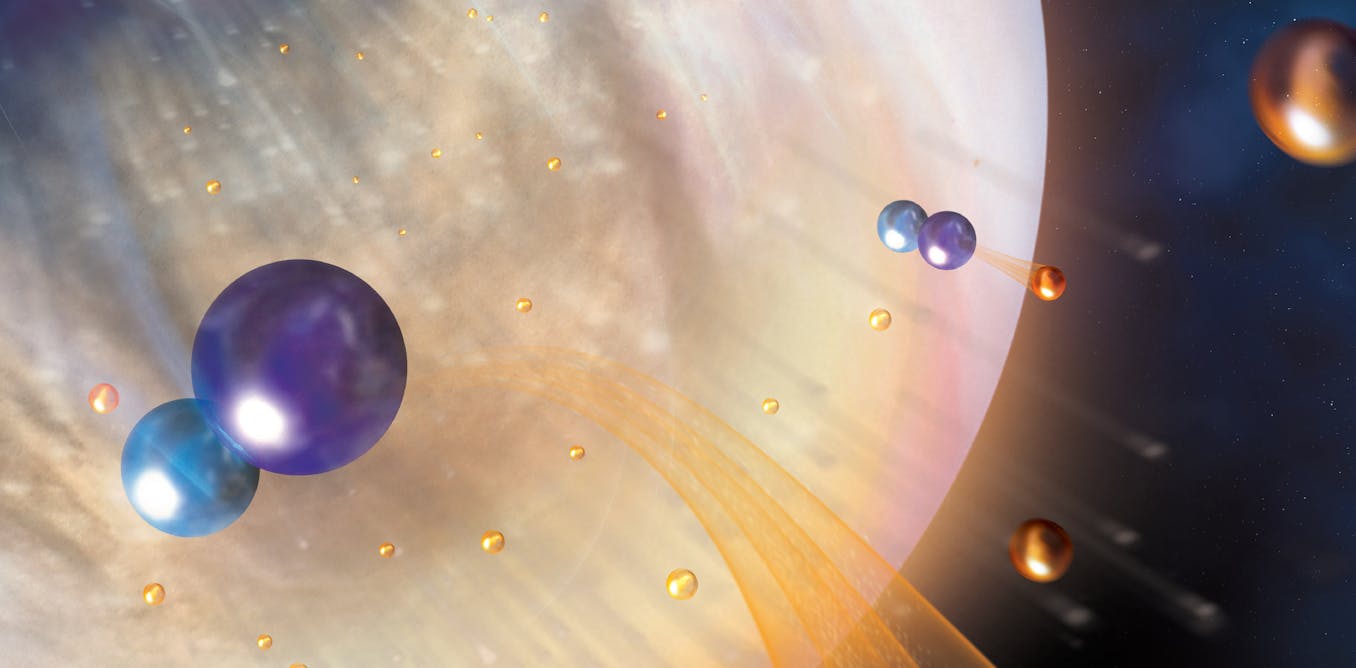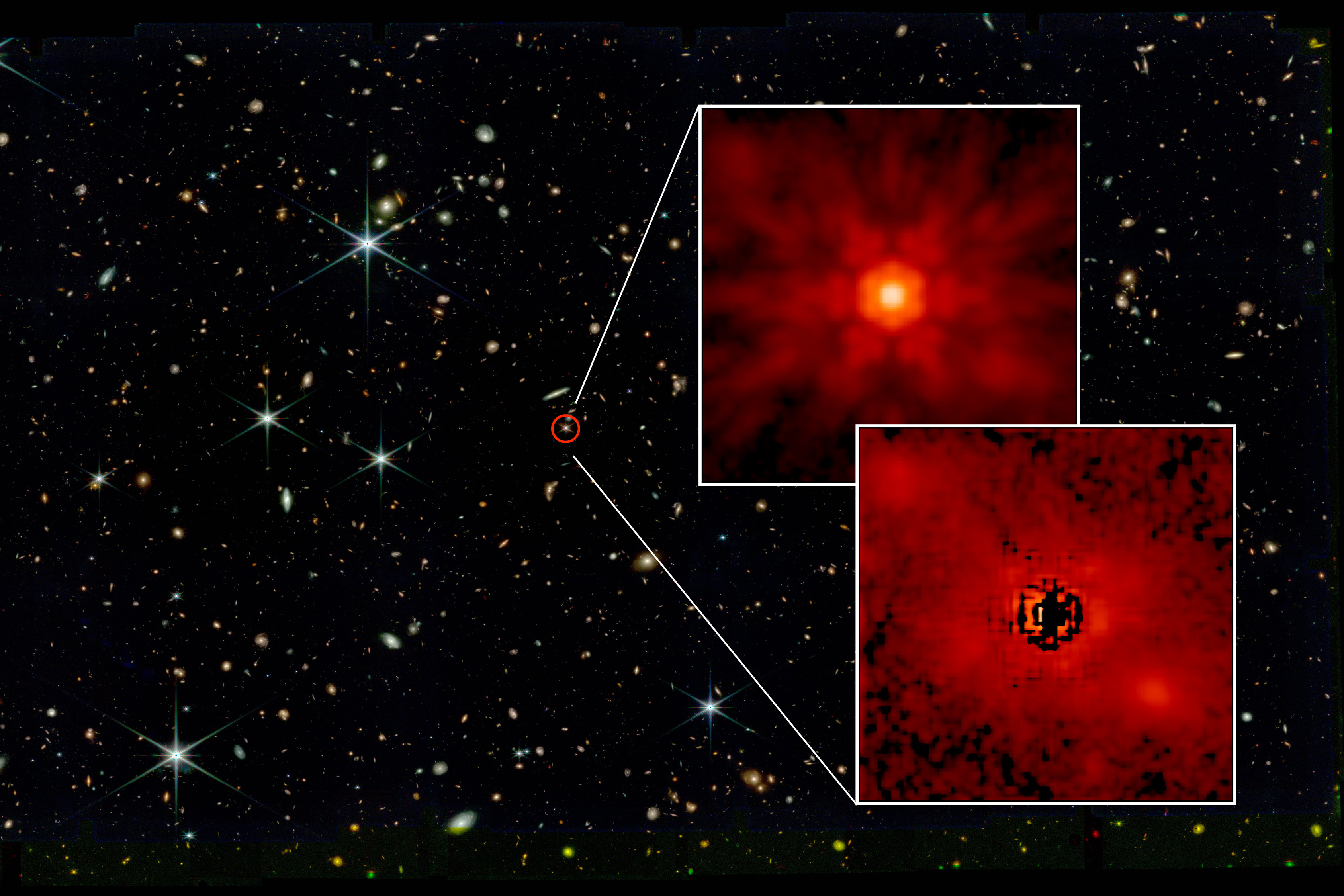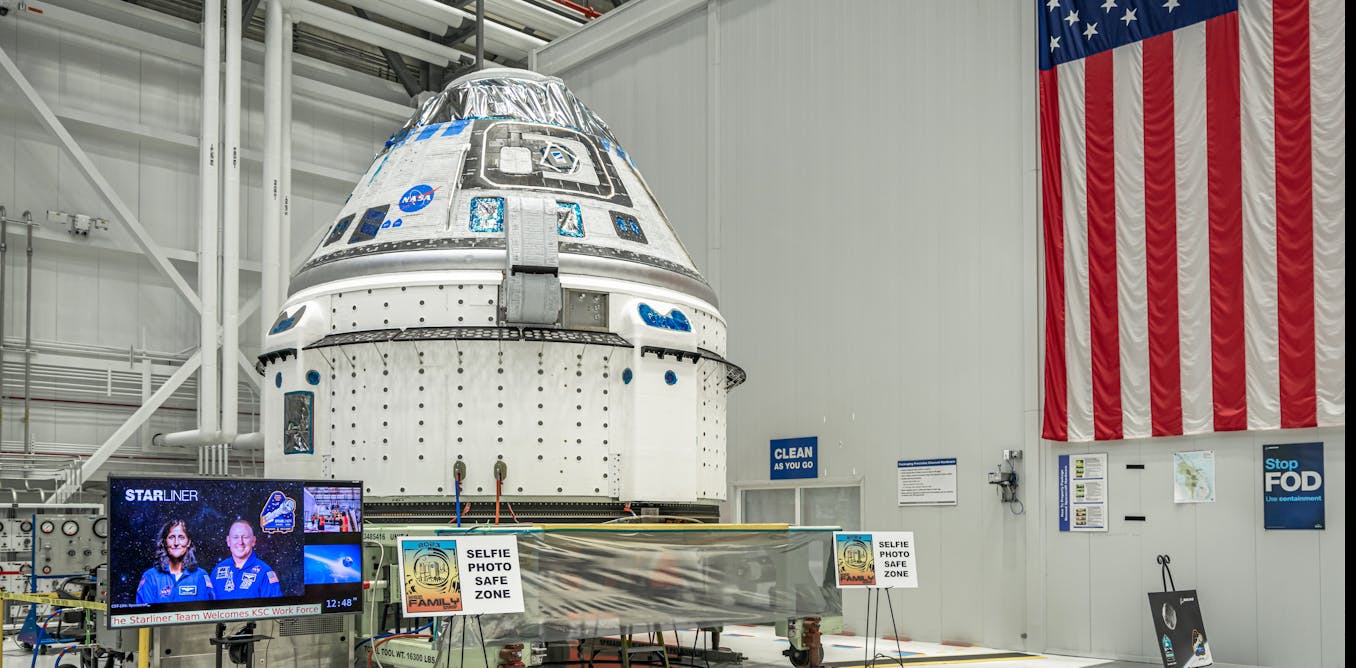Black holes are mysterious, yet also deceptively simple − a new space mission may help physicists answer hairy questions about these astronomical objects
Studying theoretical, fast-spinning black holes is helping physicists understand more about the elusive black holes out in the universe.
Gaurav Khanna, Professor of Physics, University of Rhode Island •
conversation
yesterday • ~7 min
yesterday • ~7 min
Exoplanet WASP-69b has a cometlike tail – this unique feature is helping scientists like me learn more about how planets evolve
Research on one exoplanet that’s rapidly losing its atmosphere is hinting to scientists why exoplanets tend to look a certain way.
Dakotah Tyler, Ph.D. Candidate in Astrophysics, University of California, Los Angeles •
conversation
May 8, 2024 • ~9 min
May 8, 2024 • ~9 min
Venus is losing water faster than previously thought – here’s what that could mean for the early planet’s habitability
Studying Venus’ water loss can help scientists better understand how planets go from potentially habitable to incapable of supporting life.
Eryn Cangi, Research Scientist in Astrophysical & Planetary Sciences, University of Colorado Boulder •
conversation
May 6, 2024 • ~8 min
May 6, 2024 • ~8 min
Starliner: Boeing prepares to launch its first crewed spacecraft as it chases after SpaceX
Starliner is only the second vehicle to launch astronauts from US soil since the retirement of the shuttle in 2011.
Gareth Dorrian, Post Doctoral Research Fellow in Space Science, University of Birmingham •
conversation
May 3, 2024 • ~8 min
May 3, 2024 • ~8 min
/
111


